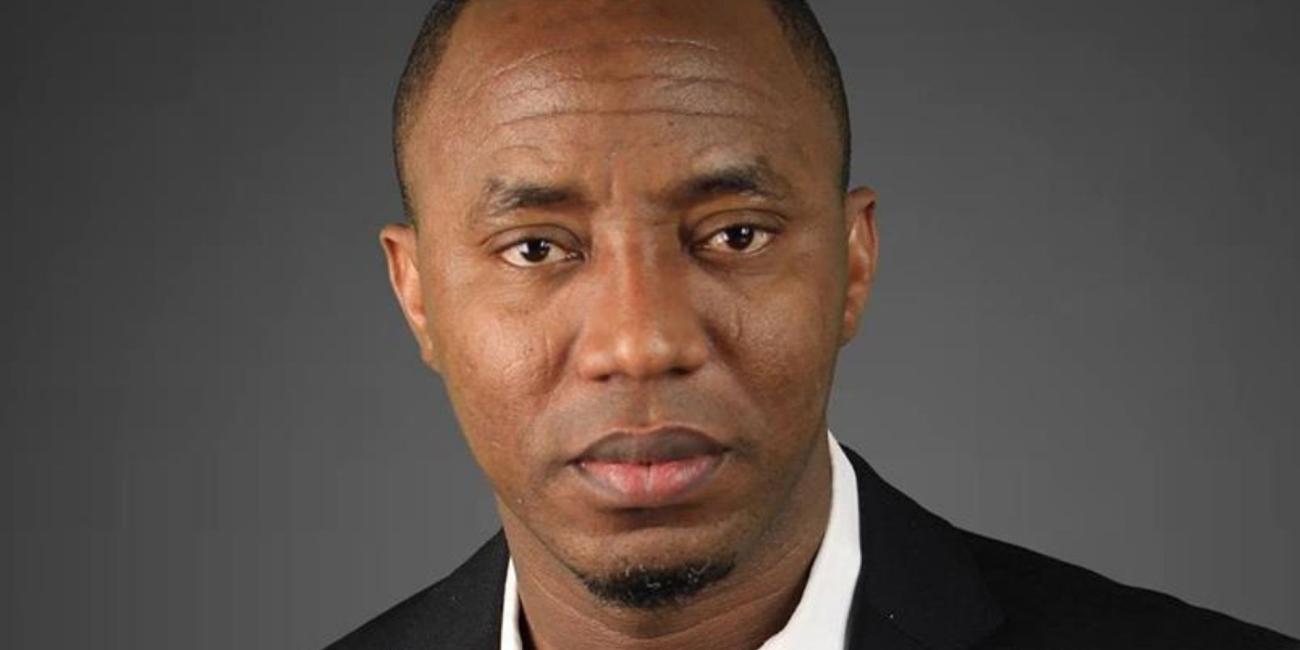
Human rights activist and pro-democracy campaigner, Omoyele Sowore, has accused several prominent political figures from Nigeria’s South-East of secretly working against the release of detained Indigenous People of Biafra (IPOB) leader, Mazi Nnamdi Kanu, despite their public declarations of support.
Speaking on Arise News TV, Sowore alleged that top politicians, including Peter Obi, Anambra State Governor Charles Soludo, and Abia State Governor Alex Otti, have been avoiding involvement in current efforts to mobilise nationwide support for Kanu’s freedom.
Sowore claimed that while many of these leaders issue public statements calling for Kanu’s release, they privately discourage the move, fearing it could jeopardise their political ambitions and relationships with the federal government.
“I once declared on your show that Kanu’s predicament is a result of some persons in the South-East who decided that his release would jeopardise their political careers and futures,” Sowore said. “Some of them told me outright that during the Imo elections, if Kanu was released, the APC might not win.”
The activist added that during the early days of President Bola Tinubu’s administration, he participated in several private conversations regarding Kanu’s possible release, where he observed a consistent pattern of political self-preservation among South-East leaders.
“Some of the communiqués you see are just for public show,” he said. “During the day, they talk about justice and fairness, but when they go at night to meet Tinubu, their position changes.
Sowore disclosed that in the last 24 hours, he personally reached out to several South-East political leaders to join the #FreeNnamdiKanu nationwide protest scheduled for October 20, but most ignored his messages.
“Some of them switched off their phones, some didn’t respond to my messages,” he said. “I reached out to Soludo — no response. I reached out to Alex Otti, who used to write columns for SaharaReporters, but he hasn’t replied either. I also contacted Peter Obi. We were told he’s in Rome, so I sent a message saying he should behave as the Romans do — meaning, join the people in demanding justice.”
Sowore, however, praised Senator Enyinnaya Abaribe, who had previously stood surety for Kanu before his 2018 re-arrest, describing him as one of the few South-East politicians genuinely supporting the cause.
“I reached out to Abaribe, and he responded immediately. He said, ‘I’m in on this,’” Sowore revealed. “I know what he went through when he was detained for standing surety for Kanu — I even slept on his bed in the DSS facility in 2019 shortly after his release.”
Sowore said some South-East lawmakers and civil society figures have already expressed willingness to participate in the protest, but lamented the lack of a unified response from the region’s political, traditional, and religious leaders.
“A number of persons have signed up, but there’s no collective voice from the South-East political elite or the clergy,” he said. “Many had hoped that the traditional rulers and church leaders would rise in unison, but that hasn’t happened.”
Despite the lukewarm response from political leaders, Sowore maintained that public support for the protest has been overwhelming, with thousands of young Nigerians — especially from the South-East — already pledging to participate.
“The Nigerian government is already feeling the pressure,” he said. “They didn’t expect such a swift and favourable response from Nigerians calling for Kanu’s release.
The development comes a day after Sowore’s meeting with former President Goodluck Jonathan in Abuja, where he sought the former leader’s intervention in resolving the prolonged detention of Nnamdi Kanu.
According to Sowore, Jonathan agreed on the need for justice, peace, and national reconciliation, and promised to discuss the matter with President Tinubu in the coming days.
“President Jonathan acknowledged that resolving this issue decisively and justly is crucial for national healing,” Sowore said. “He promised to meet Asiwaju Bola Ahmed Tinubu soon to discuss it.”
Nnamdi Kanu, leader of IPOB, has been in detention since June 2021 after being forcibly returned to Nigeria from Kenya. Multiple Nigerian court rulings — including that of the Court of Appeal in 2022 — have ordered his release, but the federal government has refused to comply, citing ongoing national security concerns.
As public pressure mounts and the political climate around his case grows more charged, Sowore’s latest revelations further expose the divided loyalties among South-East political elites, even as ordinary citizens continue to demand justice and freedom for the IPOB leader.